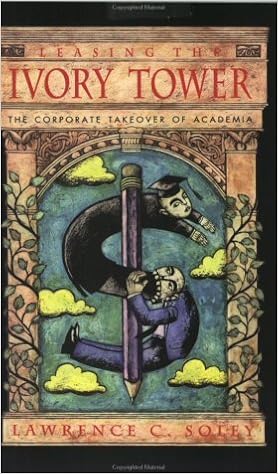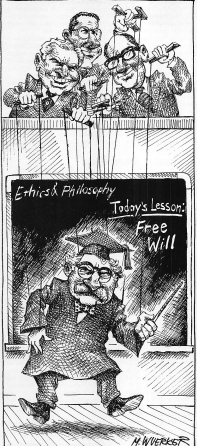Academia is being auctioned off to the highest bidder. Increasingly, industry is creating endowed professorships, funding think tanks and research centers, sponsoring grants, and contracting for research. Under this arrangement, students, faculty, and universities serve the interests of corporations instead of the public, and in the process, academic freedom and intellectual independence are sometimes sacrificed.
At the Massachusetts Institute of Technology (MIT), a number of programs serve corporate interests. One is the MIT’s Industrial Liaison Program, which charges 300 corporations from $10,000 to $50,000 per year in membership fees. The fees buy the expertise and resources of MIT’s departments and laboratories. Professors participating in the program can earn points towards professional travel, office equipment, and other prizes.
Although universities often claim that corporate moneys come without strings attached, this usually is not the case. For example, a British pharmaceutical corporation, Boots, gave $250,000 to the University of California, San Francisco, (UCSF) for research comparing its hypothyroid drug, Synthroid, with lower cost alternatives. Instead of demonstrating Synthroid’s superiority as Boots had hoped, the study found that the other drugs were bioequivalents. This information could have saved consumers $356 million if they had switched to a cheaper alternative, but Boots took action to protect Synthroid’s domination of the $600 million market. The corporation prevented publication of the results in the Journal of the American Medical Association, and then announced that the research was badly flawed. The researcher was unable to counter the claim because she was legally precluded from releasing the study.
Similarly, university presidents often sit on the boards of directors of major corporations, inviting conflicts of interest and developing biases that undermine academic freedom and interfere with the ability of the university to be critical or objective. (more...)


No comments:
Post a Comment